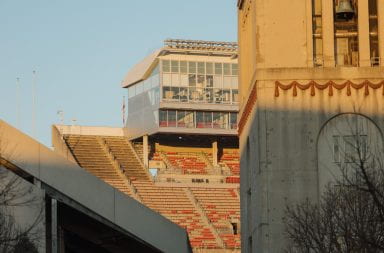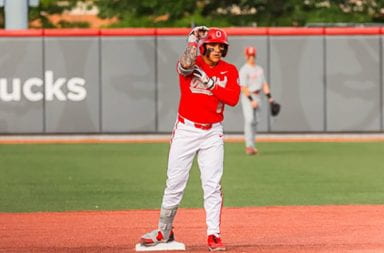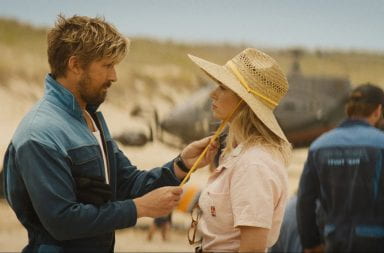The term science fiction usually conjures up images of speeding spaceships, fuzzy aliens and laser guns. But a new class devoted to the literature of science fiction is exploring the genre and discovering that there might be more to it than some think.
“It’s something that if you get two science fiction fans in a room together, you’re liable to have quite a heated argument about definitions,” said Maura Heaphy, a senior lecturer in English and the instructor of English 372: Science Fiction and/or Fantasy.
In her view, the best science fiction is not only about science and technology, although that often plays a large role. It is literature that “asks the questions that speculate on our relationship to the world and each other,” she said.
Students spent the first day of class coming up with their own definitions of science fiction, Heaphy said.
For Chloe Goodhart, a second-year in English and a student in the class, science fiction allows authors to “comment on current social issues by looking at it through the means of a futuristic, or even past, reality that is very different from our own.”
Some students have more specific guidelines and believe that sci-fi should have a plausible technological system, Heaphy added.
But no matter the definition, the class probably offers something for everyone. It explores everything from the space opera of Star Trek to the what-if scenarios of alternate history.
For example, the premise that Nazi Germany defeated the Allies in World War II is the plot of one of the novels the class has read.
One of the misconceptions people have about science fiction, Heaphy said, is that it is an inferior form of fiction, full of clichés and poor writing.
“As with any fiction, there are good writers and there are bad writers,” she said.
Her mission is to introduce the students to the best science fiction writing, Heaphy added.
Another misconception is that the audience is mostly male, Heaphy said. Not only are there a lot of women interested in the genre, but there are many female science fiction authors, she said.
That false impression became a self-fulfilling prophecy. Women authors often used gender-neutral or male pen names when they couldn’t get published under their own, Heaphy explained.
However, it’s now time for “women to make their interest in science fiction clear and work to raise the bar for other writers,” Heaphy said.
She is following her own advice. After writing two research volumes on science fiction authors, she has turned her focus to writing a sci-fi novel of her own.
The genre has captivated her for most of her life. She said it all began with the Saturday night movie specials she watched as a child. Titles such as “Attack of the Crab Monsters” and “Devil Girl from Mars” still roll effortlessly off her tongue.
“Then when I got a little older, I made the wonderful discovery that people wrote books about these things,” she said.
The class will read five novels by many classic science fiction authors, such as Philip K. Dick and Ursula K. Le Guin, as well as a number of short stories.
Leslie Barrett Beck, a fifth-year in English, said science fiction seemed to engage the class in discussions more than in other classes.
“In most of my English classes, the same three people will account for 90 percent of the discussion chatter,” Beck said in an e-mail. But in this class, that does not seem to be the case.
Despite the narrow view that many hold of science fiction, “There are infinite possibilities when you don’t have to stick with the way that our world is now,” said Natalie Pretzman, a third-year in art history, who said she remembers “Star Wars” as one of the first movies she ever saw.
Besides a creative outlet for authors, the genre can offer readers something that other styles might not be able to, Heaphy said.
“When you’ve closed the book, when you’ve ended the short story, you turn back to your own world with fresh eyes” able to see it anew, Heaphy said. “And I think that’s not a bad thing at all.”
Heaphy will teach the class again in the fall. It fulfills a GEC literature requirement and is an elective for the English major and minor.


